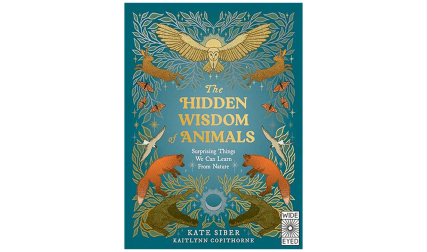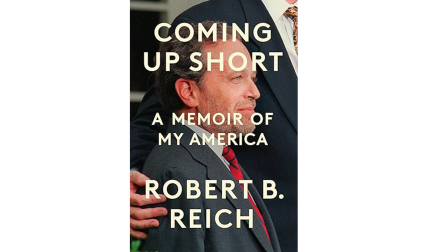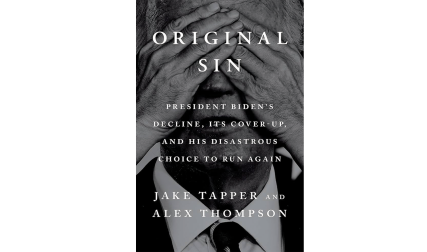Robert Christgau ’62
Going Into the City: Portrait of a Critic as a Young Man
Dey Street Books
“I love music but my passion is for writing,” the self-proclaimed “Dean of American Rock Critics” told DAM a few years ago. Now, after producing thousands upon thousands of music reviews, essays and magazine articles about pop culture, the dean turns his pen on himself. In this spry memoir, the longtime Village Voice fixture examines his formative years and the forces—particularly those found in the lower regions of Manhattan—that turned him into one of the more formidable cultural critics and observers of the past four decades.
The son of a New York City fireman, Christgau grows up in Queens at a time when rock and roll hasn’t yet figured itself out, deejay Alan Freed is stirring the airwaves, and a kid like Christgau can subscribe to The Voice for $4 a year. He eventually departs his homeland for the Hanover Plain, but the City is never far behind: He hitchhikes home on weekends. Following graduation he heads back, embarks on his writing career and rarely leaves.
In college, he tells us, he was hardly the prototypical Dartmouth man. As a 16-year-old freshman he befriends other “weirdos” to hang with. Remarkably, his relationship with a girlfriend back home survives his college years. The “relationship was shored up by Dartmouth’s sexism,” he writes. Other girlfriends and women in Christgau’s life figure prominently throughout his story, especially his wife, critic Carola Dibbell. “In my experience sex and the love that generally comes with,” he has said, “plays a determinative role in most lives.”
As Christgau builds his career with bylines in Esquire, Ramparts, Cheetah, Newsday and The Voice, the critic never becomes enamored with fame. “Never a scenester,” he writes. Other than an anecdote about getting John Lennon to sign some autographs, you won’t find much about the rich and famous here: “I interview less than any full-time rock critic, and I don’t regret it.” He still drops plenty of names, including a who’s who of rock lit and crit: Dave Marsh. Jon Landau. Jann Wenner. Lester Bangs. Greil Marcus. Christgau soaks in and contemplates all he encounters, and he flexes his critical muscles with musings such as why “Casey at the Bat” is a better poem than “The Rime of the Ancient Mariner.” (Who knew?) Somehow it all leads back to the music Christgau loves and hates, the city that nurtures it and those sticky icky floors of CBGB. Christgau, like rock and roll, never forgets. —Sean Plottner
Michael S. Gazzaniga ’61
Tales from Both Sides of the Brain: A Life in Neuroscience
Ecco Press
Gazzaniga, who founded Dartmouth’s Center for Cognitive Neuroscience, reflects on the discoveries that have figured into his landmark studies on the independence of the brain’s hemispheres and the challenges of working as a scientist.
Jonathan Sa’adah ’72
How Many Roads?
Phoenicia Publishing
In 91 large, sepia-toned images, photographer Sa’adah offers compellingly raw snapshots of life between 1968 and 1975. Including numerous images of Hanover and the surrounding area, the collection captures the unrest and hope that characterized the era.
Lindsay C. Page ’98
Summer Melt
Harvard Education Press
Coauthor Page explores the financial and psychological trials faced by many low-income college-bound students. A research scientist and assistant professor of education at the University of Pittsburgh, she outlines how schools and social media can ease the transition and ensure that students enroll.
Mara Casey Tieken ’01
Why Rural Schools Matter
University of North Carolina Press
Tieken, an education professor at Bates College, looks at two Southern towns to understand the complicated role of schools in rural areas. A coauthor in 2009 of Inside Urban Charter Schools, Tieken argues that rural public schools are critical to keeping their communities together.
Bartow J. Elmore ’04
Citizen Coke
W.W. Norton & Co.
Elmore, a professor of history at the University of Alabama, examines how a mixture of sugar, water, caffeine and a touch of cocaine could grow into a billion-dollar company. Considering the brand’s business strategies, public works projects and ecological impact, Citizen Coke is “a superb, quietly devastating environmental and business history,’’ according to a starred review in Kirkus Reviews.
Additional books that were not listed in our print edition:
Nelson Bryant ’46, who wrote The New York Times’ “Wood, Field and Stream” (later called “Outdoors”) column for 30 years, shares the adventures of a Martha’s Vineyard youngster he first told to his boys as bedtime stories in Mill Pond Joe (YBK Publishers).
William Hutchens ’53, Tu’58, uses more than 100 photographs to tap into family history by reconstructing the life of his great-uncle, American Impressionist painter Frank Townsend Hutchens, in An Artist’s Life: Frank Townsend Hutchens (WDH Press).
Bill Lenderking ’55 follows his 2013 crime novel The Soul Murderer with a memoir of his decades as a Foreign Service officer, a career that spanned four continents and innumerable conflicts, in You Can’t Beat the Issues: Fifty Years with the U.S. Government in Peace and War (XlibrisUS).
William Gould ’54 follows the lives of two childhood friends—one expelled from a New England college following the death of another student and one who goes into finance and becomes involved in a dangerous investment—in his third novel, The Note Played Next (iUniverse).
Thomas Wentworth ’70, a professor of plant and microbial biology at North Carolina State University, uses his years leading forest walks through southern Appalachia to illuminate the region’s most fascinating features, from its rich wildlife to challenging hiking trails, in Exploring Southern Appalachian Forests: An Ecological Guide to 30 Great Hikes in the Carolinas, Georgia, Tennessee, and Virginia (University of North Carolina Press).
Howard Reiss ’73—whose 2012 novel The Year of Soup won the 2013 Independent Publisher Book Award silver medal for best fiction in the Northeast region—imagines the courtroom drama that unfolds when a 24-year-old widow claiming to be her octogenarian husband’s first wife reincarnate inherits his $50-million estate in The Laws of Attraction (Krance Publishing).
Matthew Dickerson ’85, author of A Tale of Three Rivers and Trout in the Desert, explores how humans interact with rivers with a combination of narrative, memoir and philosophy as coauthor of Downstream: Reflections on Brook Trout, Fly Fishing, and the Waters of Appalachia (Cascade Books).
Nitza Delgado Hollinger ’86 shared an account of her fight against breast cancer, diagnosed in December 2010, in Through the Trials Just Believe (Xlibris). She died in June 2014, a few days after her book was published.
Social issues scholar Ulrich Boser ’97 is both scientist and raconteur as he considers the origins, uses and significance of trust and social coherence in modern society in The Leap: The Science of Trust & Why It Matters (New Harvest).
Michael Shaw Perry ’03 frames the ethical questions of who we are and what we ought to be in situations in which many conflicting actions seem correct in Moral Dilemmas, Identity, and Our Moral Condition: A Guide for the Ethically Perplexed (Algora Publishing).




